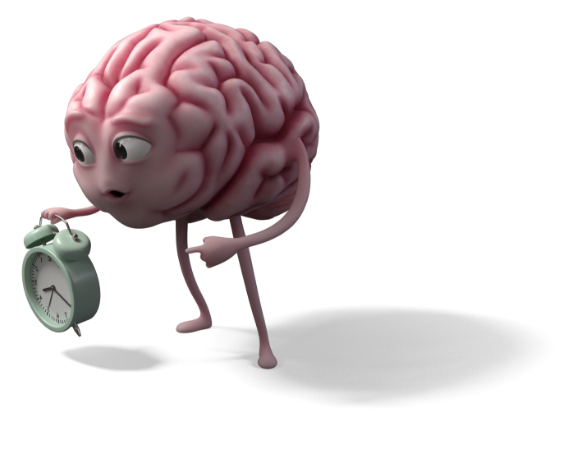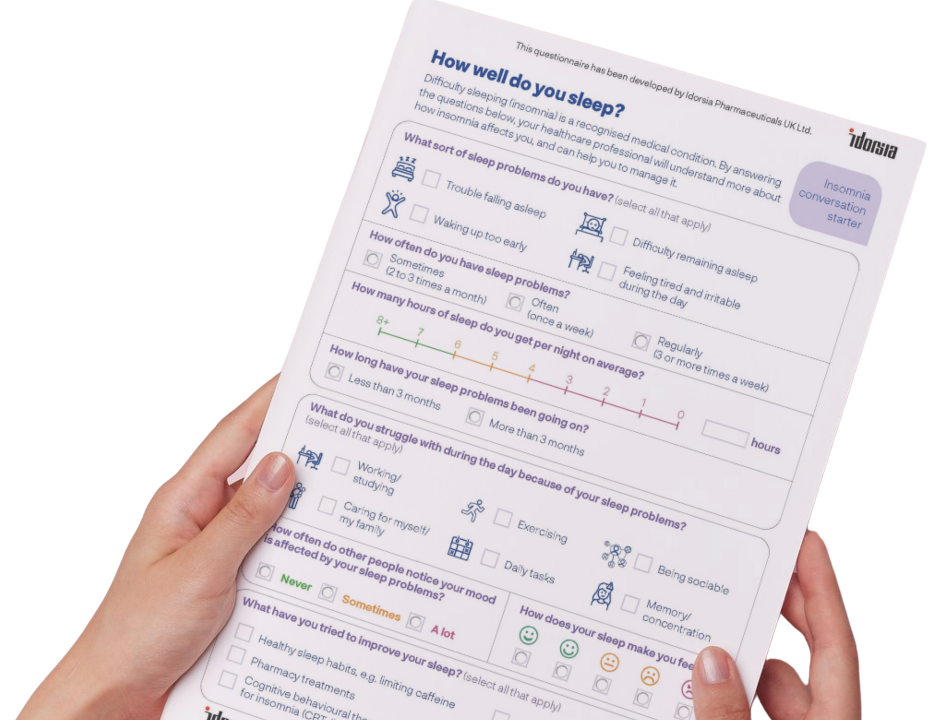Frequently asked questions about insomnia
Defining chronic insomnia
What is chronic insomnia?
Chronic insomnia is defined as difficulty falling asleep, staying asleep and/or waking too early in the morning, experiencing symptoms at least 3 times a week for 3 months or more. These difficulties may affect daytime activities by impacting on your mood, concentration, memory and making you feel tired during the day.
How many people have chronic insomnia?
1 in 10 people live with chronic insomnia.
If you’re one of them, know that you’re not alone and there are many different methods for managing insomnia out there.

What’s the difference between acute and chronic insomnia?
Both acute and chronic insomnia involve having trouble falling asleep, staying asleep and/or waking too early at least 3 times a week.
Acute insomnia lasts for less than 3 months, and when the trigger of the insomnia resolves, such as a stressful time at work, the insomnia goes away.
Chronic insomnia, on the other hand, is when trouble sleeping lasts for
3 months or longer with sleepless nights that continue even after the trigger resolves.
Trouble sleeping at least
3x
a week
Doesn’t everyone have trouble sleeping sometimes?
Sure. Lots of people experience a bad night’s sleep once in a while.
But when this happens at least 3 times a week, it’s more than just trouble sleeping – it may be insomnia. Insomnia can impact your days as well as your nights.
It’s a recognised medical condition that can be managed.

Symptoms and causes
What are common symptoms of chronic insomnia?
You might already be familiar with the nighttime symptoms of insomnia – difficulty falling asleep, difficulty staying asleep and waking up earlier than you want to.
What you might not know is that there are also many daytime symptoms of chronic insomnia, because it doesn’t just impact your nights, it can affect how you feel in the day too.
Some of the daytime symptoms of chronic insomnia include:
- Morning sleepiness
- Fatigue
- Bad work performance
- Reduced social interactions
- Poor concentration
- Irritability and bad moods
Can some things make insomnia worse?
Lots of various factors can stimulate the brain and affect your sleep cycle. For example excess noise, a room that is too hot or cold, an uncomfortable bed, alcohol, caffeine or nicotine – to name just a few.
If you’re having trouble sleeping, it’s also important to maintain good sleep hygiene. Sleep hygiene means having a regular routine to help improve sleep.
This is an external link to an NHS website
Why do some people get chronic insomnia?
Different things can lead to trouble sleeping, including worries, stress, or going through a difficult time. Once these triggers resolve, or as time passes, most people are able to sleep again. But in chronic insomnia, even if the triggers that originally caused trouble sleeping resolve, you may still not be able to sleep.
Some people are also more likely to experience chronic insomnia than others, such as older adults or women who are going through the menopause.
Who is most likely to get chronic insomnia?
Some people are more likely to experience insomnia than others, such as older adults as well as those who are menstruating, pregnant, or women who are going through the menopause.
Plus, being exposed to stressful triggers can also increase your risk of developing insomnia. These triggers could be a stressful time at work, losing someone you love, or financial difficulties.
That being said, having good sleep habits may help reduce the risk of insomnia for many people. Avoiding daytime napping, keeping your bedroom cool, and switching screens for music or reading are just a few sleep hygiene tips that may help you get a good night’s rest.
This is an external link to an NHS website
Diagnosis
How is chronic insomnia diagnosed?
Insomnia is a medical condition that can be diagnosed by doctors.
Therefore, it’s important to tell your doctor about any daytime and nighttime symptoms you’re experiencing and how long you’ve been experiencing them for as this is the only way they’ll know if you’ve got chronic insomnia or not.
A doctor may also ask you to track your sleep patterns for a few weeks and share your medical history with them so they can get a better picture of you and your relationship with sleep.
What can be done to help people with chronic insomnia?
If you have chronic insomnia, know that you are not alone – 1 in 10 people are going through the same thing.
Chronic insomnia is a recognised medical condition, and help is available. If you’re struggling with your sleep, speaking with a doctor can be a good step towards finding the right support for you.
To prepare for your conversation, here’s a tool that can help: download the conversation starter
Support your conversation about chronic insomnia with your doctor or pharmacist
